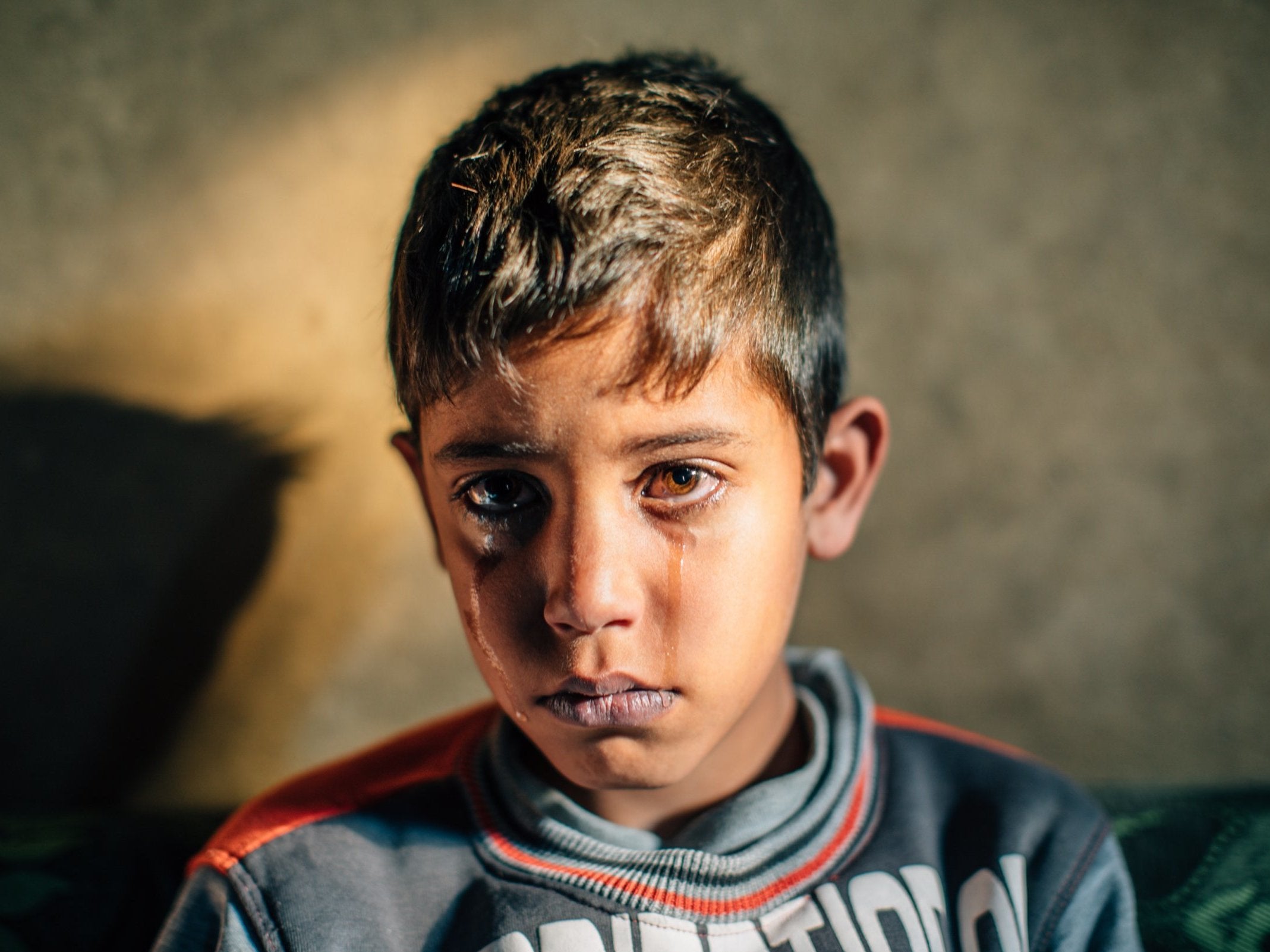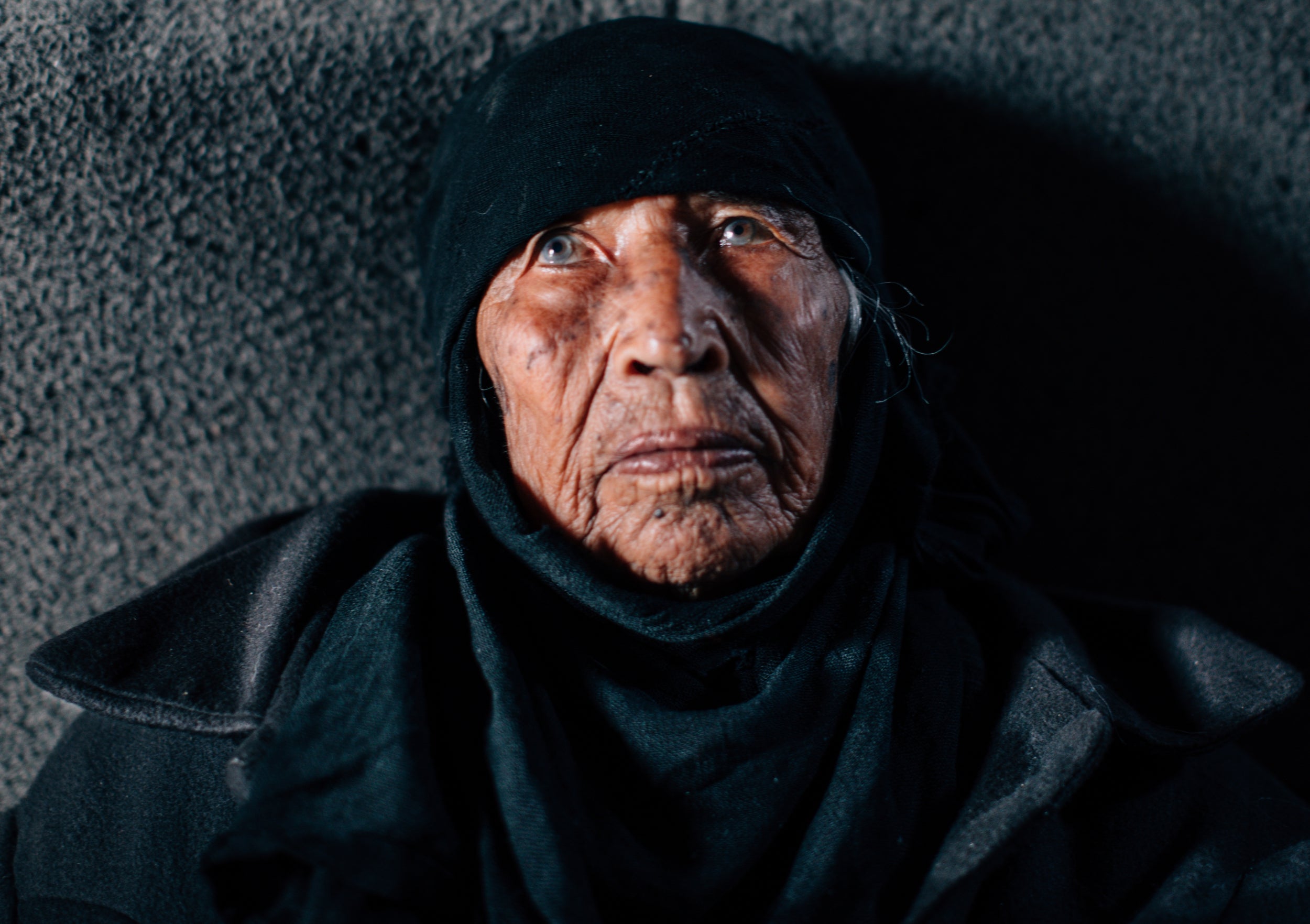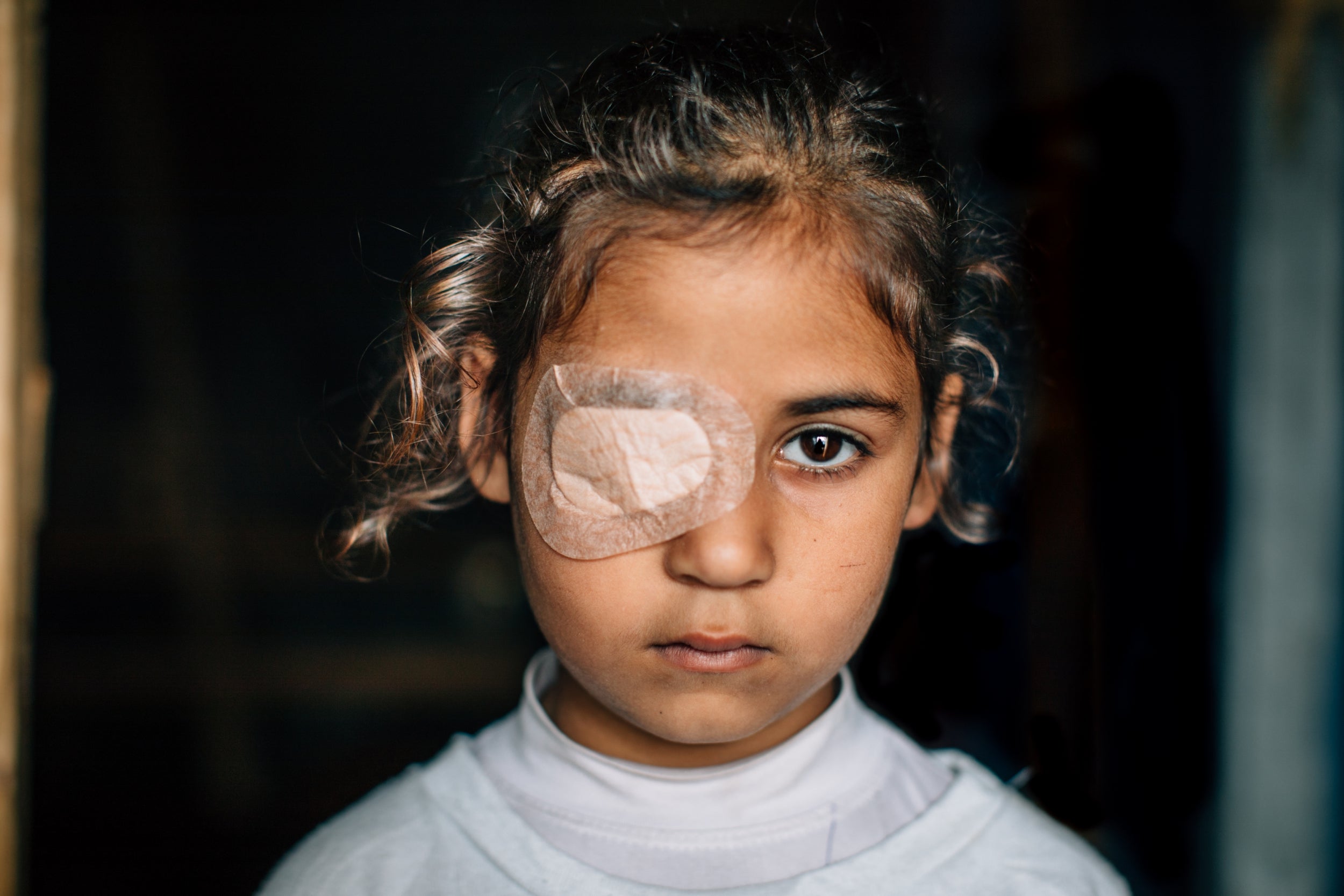‘We can't survive like this’: Life in the camps for Syria’s refugee children
Paddy Dowling, humanitarian photojournalist, returns to Lebanon to find Syrian children as young as eight forced into work to support their families, “has the world just grown tired of the Syrian Refugee Crisis now in its eighth year?”


Your support helps us to tell the story
From reproductive rights to climate change to Big Tech, The Independent is on the ground when the story is developing. Whether it's investigating the financials of Elon Musk's pro-Trump PAC or producing our latest documentary, 'The A Word', which shines a light on the American women fighting for reproductive rights, we know how important it is to parse out the facts from the messaging.
At such a critical moment in US history, we need reporters on the ground. Your donation allows us to keep sending journalists to speak to both sides of the story.
The Independent is trusted by Americans across the entire political spectrum. And unlike many other quality news outlets, we choose not to lock Americans out of our reporting and analysis with paywalls. We believe quality journalism should be available to everyone, paid for by those who can afford it.
Your support makes all the difference.In a dark, damp living room a young boy leans forward awkwardly as he sits alone on green patterned floor cushions. His gaze to the floor, wrapped in blankets, he huddles by the family stove. Abdul Al Moamen,10, slowly raises his eyes to meet the last of the evening light finding the gaps in the mortar between the concrete blocks of the walls of his family home.
With the sound of feet shuffling on the coarse concrete floor and a rustling of papers, his father, Muhammad, emerges from the black of the adjoining room. He clutches an armful of medical documents written in French, a language he cannot read. His son is two years overdue a heart operation that would save his life.
Ahmed Fawzi, Lebanon country director for Muslim Aid, a UK-based NGO, discusses the case and an immediate course of action with the family. Abdul quietly cries in the corner, the tears journeying down his cheeks past his visibly blue lips, the cyanosis a sign that his heart is failing. He understands the dismal prognosis. He slumps against the wall and his eyes return to the floor, defeated.
His family, like many Syrian refugees, rely solely on UN handouts of under a dollar a day to survive. His father, an unemployed labourer, is in no position to contribute his share of the $50,000 procedure to save his son's life, instead forced to borrow money for food expenses and rent. He is not alone. Almost nine out of every ten refugees say they are in debt to shopkeepers and landlords, further highlighting the vulnerabilities of most Syrian refugees in Lebanon.
Abdul and his family are amongst the 60,000 refugees across 6,000 tents in the Arsal region of east Lebanon. The al-Wafa camp in which they live hosts 700 Syrians who fled their homes at the outbreak of civil war in 2012.
The UN High Commissioner for Refugees claims 948,849 Syrian refugees are registered in Lebanon, but actual figures from municipalities and central government report that 1.5 million have spilled across the border, adding to 450,000 Palestinians according to the UN Relief and Works Agency.
“What are my choices now for me and my family … its the bad here or the worst in Syria.” Ahmed Slabi, 45, from Homs, describes having to leave a life where he asked for nothing to now subsisting on international aid, a social pariah, begging in a country which is not his own.
“The local residents of Arsal have been kind to us, they welcomed us and helped us when we needed it most … but as their community struggle themselves, inevitably, they grow tired of our presence and we are now tired of being here”.
This is the world's largest refugee crisis and it has been shouldered by countries such as Lebanon which have provided sanctuary for millions, sharing access to education, hospitals and other services on an unprecedented scale. With the crisis now in its eighth year and no clear end in sight, international humanitarian funding is looking decidedly uncertain for 2019. Has the world simply had enough of this crisis?
Ahmed, father of five, is faced with an unimaginable dilemma: stay and starve at Aedoun Camp or travel the 80km back over the mountain pass to his home in Syria, and likely starve there too. “Help us please, we cannot survive here like this anymore.” The exhausted, anguished plea of a raddled man.
Many Syrians contemplate the difficult journey home, to the towns and villages from which they fled, many with only the clothes on their backs, unsure now whether they still have homes to come back to.
UNHCR records indicate to date only 12,620 refugees have voluntarily returned to Syria. Only 1,398 have done so from Lebanon - an insignificant 0.1 per cent.

Basking in the intoxicating paraffin warmth of her tent, Fuda Al-Bareesh, 92, spends her days alone. At the arrival of visitors her piercing blue eyes sparkle momentarily, catching the light from the open doorway. Her journey from Syria by donkey was also alone, and to this day she has heard no news of her children from whom she was separated in the exodus of 2012. Kindly neighbours fetch her fuel for her, but she often has to go without food to pay for it
Outside, a queue forms at the distribution near the camps entrance. Men, woman and children queue patiently one behind the other, their breath hanging motionless, suspended in the crisp winter morning air. The blue jerry cans with red caps gripped by their cold weathered hands hung by their side and twitched and danced in the line, empty with the anticipation of being refilled. A fuel bowser arrived to dispense 20 litres of free heating fuel for families desperate to keep their stoves lit as temperatures consistently fall to -5 degrees celsius at night.
Jehangir Malik, head of Muslim Aid, explains, “As we complain about our mild winters in the UK, our heartfelt thoughts go out to the people of the Lebanon where the habitations of Syrian refugees and local communities have been ravaged by the snow, rain and wind of recent storms Norma and Miriam. Through local teams, we have brought heating fuel, mattresses and blankets which will give people some comfort, but there is still so much more to be done. We must also lobby for more international support to the Lebanon which is providing temporary refuge to so many who have fled the ongoing dire violence and upheaval in Syria”.
Storms Norma and Miriam have left rubbish floating in the deep stagnant rainwater in the alleyways between the white tarpaulin tents at Somakia Refugee camp in the northern Lebanese town of Akkar. Qaram, eight, sits on a green sun-beaten plastic chair in the doorway of her home. A large fabric patch covers her right eye, which she hides from onlookers out of embarrassment. She is in desperate need of an operation to save her sight. Qaram is an orphan, her father killed by Isis who suspected him of siding with the Syrian regime in Akesh in east Sulaymaniyah. Her grief stricken mother abandoned Qaram and her five other siblings when she was just two years old. While she is now cared for by extended family, there is little chance they will be able to raise any money to fund the $7,500 cost of the procedure. While Qaram waits in hope, she has been forced out of school to contribute to her new family, working eight hour shifts every day with her friends on a nearby farm.

Local farmers visit refugee camps to recruit children to plant and harvest their crops, for which they pay around $3 per day. Unicef have identified around 180,000 Syrian OOSC (Out Of School Children) in Lebanon alone that are forced into child labour on farms and in factories to support their families.
Education is the key to empowering Syria's next generation and provide support for their families and communities. Mary Joy Pigozzi, executive director of Educate A Child, explains "To help address the plight of Syrian and Palestinian children in Lebanon who have been affected by the conflict in Syria, EAA’s Educate A Child programme has partnered with UNRWA and the US. Fund for Unicef to increase education access for OOSC; provide psychosocial and survival skills support systems; deliver learning content adapted to the aggravated setting; improve the quality of teaching; ensure safe learning environments; construct/rehabilitate learning spaces; and train school management staff."
Syrian refugees in Lebanon are still more vulnerable than ever, with more than half living in extreme poverty and three quarters below the poverty line. Eight years into the crisis, Syrian refugees in Lebanon are more reliant than ever on aid. With continued support from the International community and the patience and good grace of the Lebanese people maybe one day they will make their journey home.
While Abdul’s brothers and sisters play outside on the snow-capped mountains of Arsal, he remains by the family stove in the living room with his parents, praying for a miracle to keep him alive.
You can donate to Muslim Aid's global winter appeal here
Join our commenting forum
Join thought-provoking conversations, follow other Independent readers and see their replies
Comments